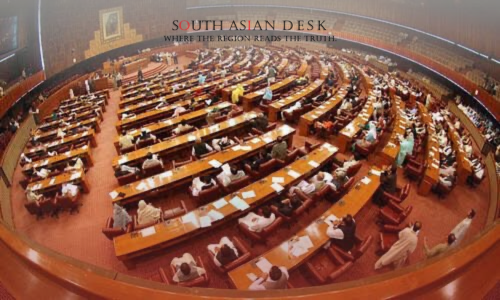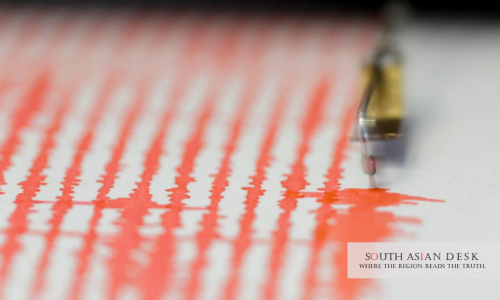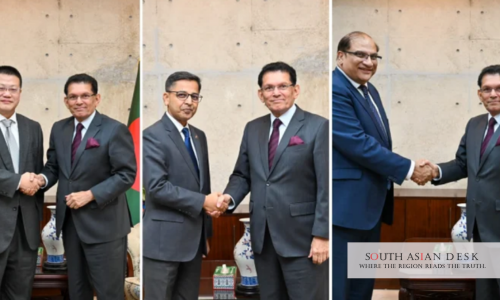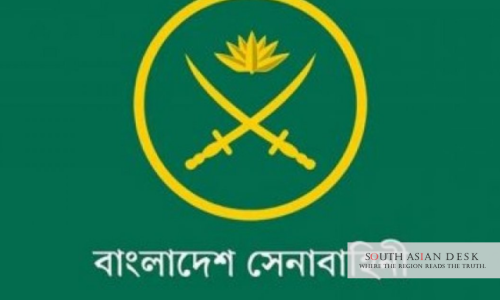Pakistan Tehreek-i-Insaf announces boycott of the September 9, 2025, Senate by-election, citing unfair electoral processes.
PTI Senate Boycott Decision
The Pakistan Tehreek-i-Insaf (PTI) has declared its boycott of the Senate by-election scheduled for Monday, September 9, 2025, in Islamabad, to fill a vacant Punjab seat following the disqualification of PTI senator Ejaz Chaudhry. The decision, announced by Salma Ejaz, wife of the disqualified senator, reflects PTI’s stance against participating in what it calls a “fraudulent electoral process.”
Why It Matters
The PTI Senate boycott underscores deepening political tensions in Pakistan, highlighting concerns over electoral integrity and the treatment of opposition members. This move could influence public perception and political dynamics in Punjab, a key province, and signal broader resistance to the current government’s electoral framework.
PTI’s Rationale for the Boycott
The PTI’s decision stems from its belief that the electoral process is compromised. Salma Ejaz, the expected candidate, stated she would not contest, refusing to legitimise what the party deems unfair elections. PTI Central Secretary Information Sheikh Waqas Akram, conveying a message from party founder Imran Khan, said participating would disrespect PTI members and senators imprisoned under what he described as “false” charges related to the May 9 cases. According to PTI’s official statement on X, the party views the disqualifications as unjust and politically motivated.
The boycott extends to all seats vacated due to disqualifications, with an exception for the seat of the late Mian Azhar in Lahore, where his son, Hammad Azhar, will contest. This selective participation highlights PTI’s strategic approach to balancing protest with political engagement.
Political Context
The Senate seat became vacant after Ejaz Chaudhry’s disqualification following a 10-year prison sentence by an anti-terrorism court related to the May 9 riots, leading to his disqualification under Article 63(1)(h) of the Constitution. The Election Commission of Pakistan (ECP) subsequently scheduled the by-election for September 9 to fill the seat. Meanwhile, the Pakistan Muslim League-Nawaz (PML-N) has nominated former interior minister Rana Sanaullah Khan for the seat, indicating a competitive electoral contest despite PTI’s absence.
The boycott aligns with PTI’s broader narrative of resisting perceived state oppression. Imran Khan’s message, as relayed by Akram, accuses the government of targeting PTI affiliates with unjust imprisonments. This rhetoric resonates with PTI’s voter base, particularly in Punjab, where the party enjoys significant support.
Implications for Pakistan’s Political Landscape
The PTI Senate boycott could have ripple effects. By refusing to participate, PTI risks losing representation in the Senate, potentially weakening its legislative influence. However, the move may strengthen its position among supporters who view the boycott as a principled stand against a flawed system. Political analysts suggest this could galvanize PTI’s base ahead of future elections, though it may also alienate moderate voters seeking pragmatic engagement. The boycott also raises questions about electoral fairness in Pakistan. PTI’s claims of “fraudulent elections” echo concerns raised by international observers about transparency in past polls. The Election Commission of Pakistan (ECP) has not issued any public response to PTI’s boycott announcement.
PML-N’s Strategic Advantage
With PTI out of the race, PML-N’s Rana Sanaullah Khan faces reduced competition. The PML-N, currently in power, may capitalise on this to strengthen its Senate presence, particularly in Punjab, a traditional stronghold. However, PTI’s boycott could draw attention to governance issues, potentially embarrassing the ruling coalition if voter turnout is low.
Background
The PTI Senate boycott follows a pattern of opposition protests against electoral processes in Pakistan. Since Imran Khan’s ouster as prime minister in 2022, PTI has frequently accused the government of manipulating elections and targeting its leaders. The May 9 cases, referenced by PTI, relate to violent protests following Khan’s arrest in 2023, leading to legal actions against numerous party members. The Senate, Pakistan’s upper legislative house, plays a critical role in federal legislation, making vacancies and by-elections politically significant.
What’s Next
The ECP will proceed with the by-election on September 9, 2025, despite the PTI Senate boycott. Observers will watch voter turnout and PML-N’s performance closely. PTI’s decision to field Hammad Azhar in Lahore suggests a calibrated strategy, balancing protest with selective participation. The boycott may intensify calls for electoral reforms, potentially shaping Pakistan’s political discourse in the coming months.
Published in SouthAsianDesk, September 2nd, 2025
Follow SouthAsianDesk on X, Instagram, and Facebook for insights on business and current affairs from across South Asia.






